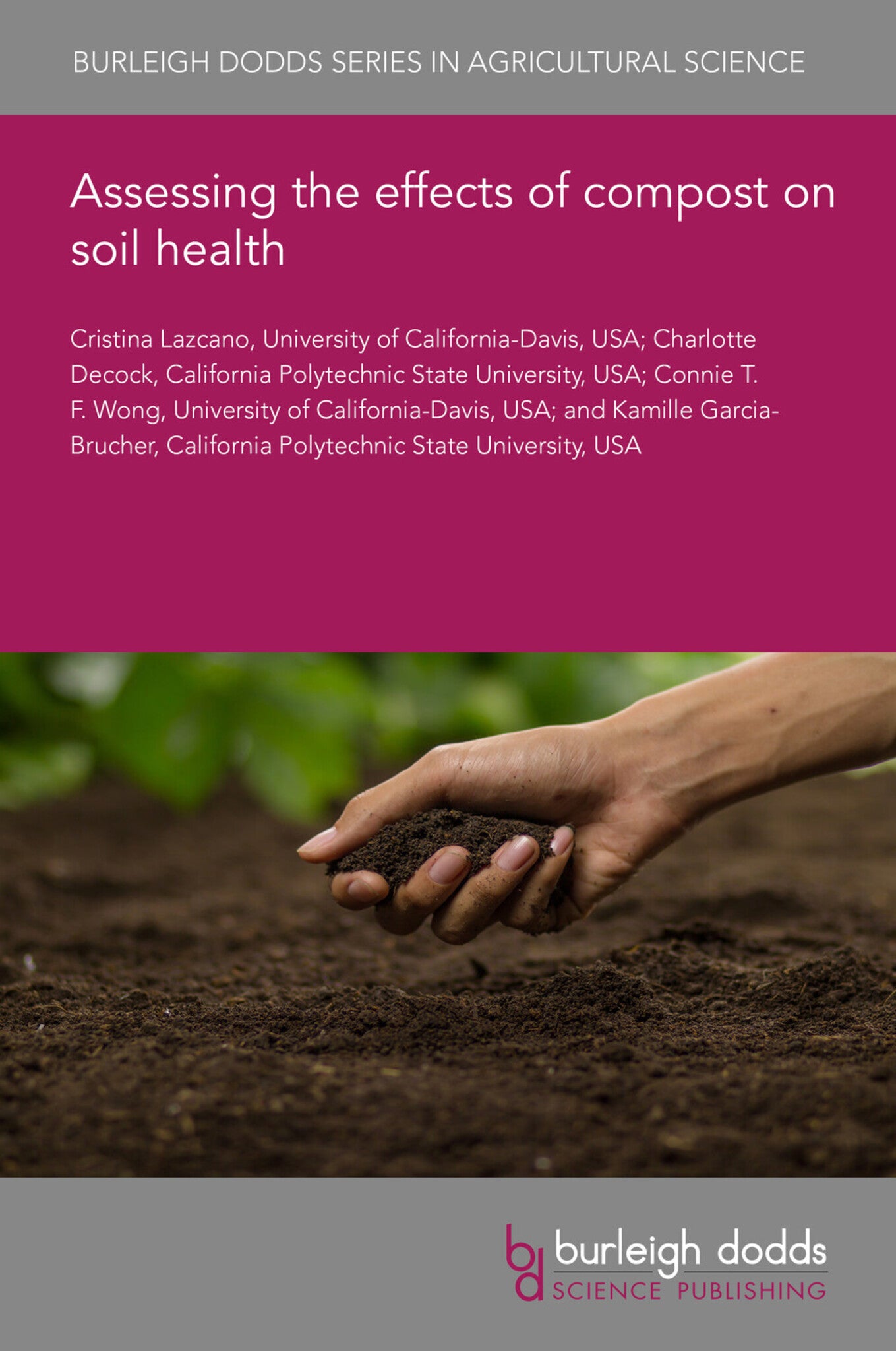We're sorry. An error has occurred
Please cancel or retry.
Assessing the effects of compost on soil health
Regular price
£25.00
Sale price
£25.00
Regular price
£25.00
Unit price
/
per
Sale
Sold out
Re-stocking soon
As agricultural producers embrace the principles of the circular economy and regenerative practices, the use of organic fertilizers is becoming increasingly common. Composting is a robust, low-cost...
Read More

Some error occured while loading the Quick View. Please close the Quick View and try reloading the page.
Couldn't load pickup availability
- Format:
-
10 October 2022

As agricultural producers embrace the principles of the circular economy and regenerative practices, the use of organic fertilizers is becoming increasingly common. Composting is a robust, low-cost technology that stabilizes organic waste materials into organic fertilizers that can be safely applied to crops. Numerous experiments carried out in the last decades show that compost has well-known short- and long-term, direct, and indirect benefits for soil health, albeit these are extremely variable. This uncertainty may decrease grower adoption rates. This chapter provides a critical evaluation of the potential of compost to improve soil health. Looking at a wide range of soil health indicators, we identify those that are consistently responsive to compost. We identify sources of variability and potential risks of compost for environmental quality, pointing at future research needs. Two case studies evaluate the tradeoffs between benefit and risks in the use of compost in perennial and annual crops.

Price: £25.00
Publisher: Burleigh Dodds Science Publishing
Imprint: Burleigh Dodds Science Publishing
Series: Burleigh Dodds Series in Agricultural Science
Publication Date:
10 October 2022
ISBN: 9781801466189
Format: eBook
BISACs:
TECHNOLOGY & ENGINEERING / Agriculture / Agronomy / Soil Science, Soil science and management, TECHNOLOGY & ENGINEERING / Agriculture / Agronomy / Crop Science, TECHNOLOGY & ENGINEERING / Agriculture / Sustainable Agriculture, Sustainable agriculture, Agronomy and crop production

- 1 Introduction
- 2 Why compost?
- 3 Effects of compost on soil nutrient cycling
- 4 Effects of compost on soil hydraulic properties
- 5 Effect of compost on crop productivity
- 6 Effects of compost on soil biodiversity
- 7 Effects of compost on environmental quality
- 8 The use of compost to improve soil health in annual crops: a case study with strawberries
- 9 The use of compost to improve soil health, sequester carbon and reduce greenhouse gas emissions in perennial crops: a case study
- 10 Conclusion
- 11 Where to look for further information
- 12 References



